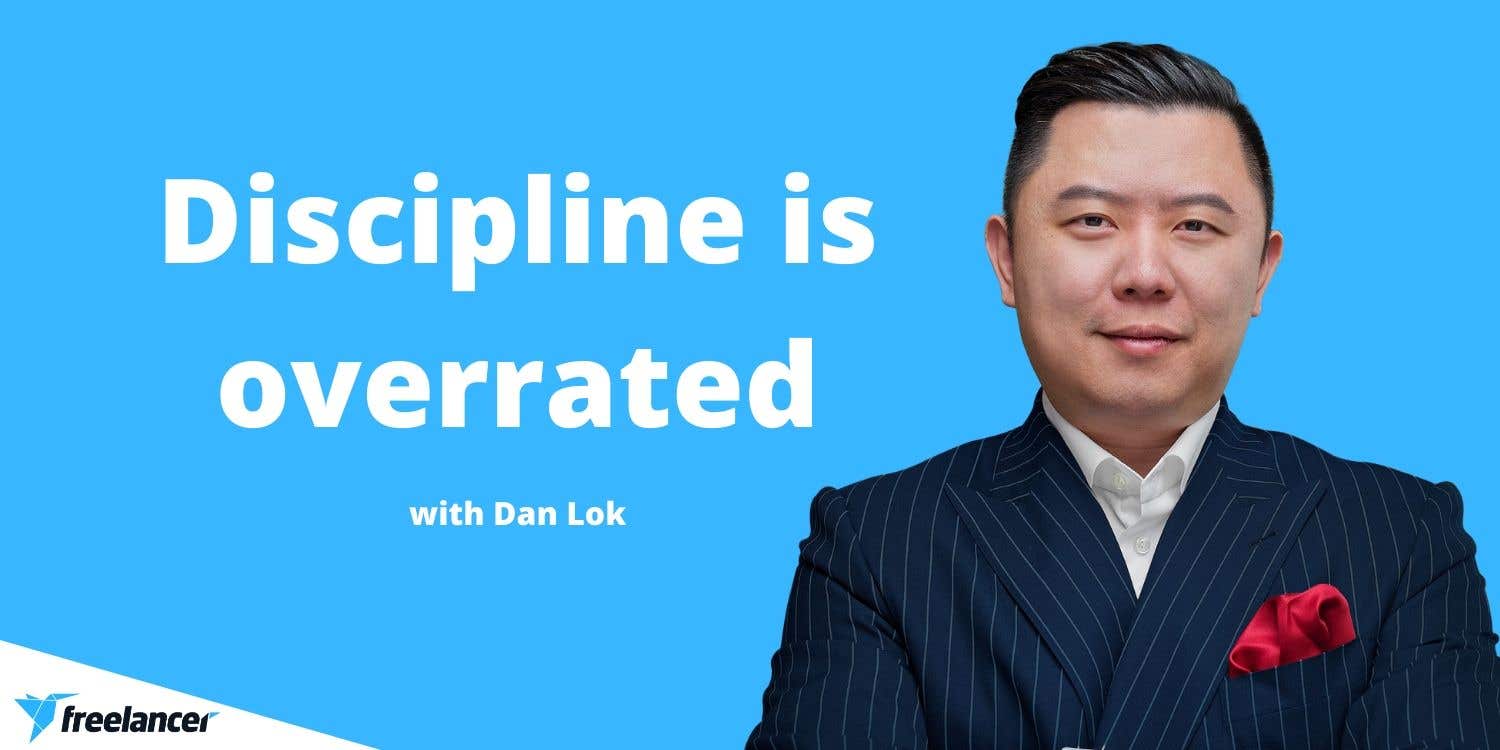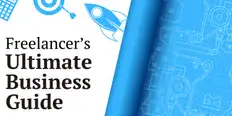Yapay Zekâ (AI) İş Danışmanınız Ava ile Sohbet Edin
Merhaba, ben Ava, işinizi güçlendirmek için AI (Yapay Zekâ) rehberiniz!
İster zaten bir işletme yürütüyor olun, ister bir işletme açmayı hayal ediyor olun, Yapay Zekâ (AI) destekli freelancerları kullanarak hayalinizi gerçeğe dönüştürmenizde yardımcı olmak için buradayım. İş hedeflerinizi paylaşın ve birlikte yetenekli freelancerlarımızın teklif verebileceği bir proje oluşturalım. Haydi, hayalinizi gerçek yapalım!
Bir işe sahibim
Bir işletme açıyorum
Görüşmeyi e-posta adresinize gönderirken bir hata oluştu. Lütfen daha sonra tekrar deneyin.
Görüşmelerinizi her saat yalnızca bir kez kayıt edebilirsiniz. Lütfen daha sonra tekrar deneyin.
Bu görüşme çok kısa. Kayıt etmeyi aktifleştirmek için Ava ile konuşmaya devam edin.
Why your brand is your last line of defense
Your company's brand may be a bit of an afterthought for you, but marketing expert Eric Siu says it's your most important defense
18 Ara 2019 • 4 dakikalık okuma
11 Ara 2020 tarihindeProduct Knowledge T. tarafından güncellendi.

Product Knowledge Team Lead at Freelancer.com
Panoya kopyalama başarısız, lütfen izinlerinizi düzenledikten sonra tekrar deneyin.
Panoya kopyalandı.

Your brand is the only defensible position your company has. This is why
Your competitors can come for you in a lot of different ways. They can outspend you on advertising. They can rip off your products or service offerings. They can outrank you on Google. But you've got one thing they can't take from you: your brand.
This is why Eric Siu, CEO of digital marketing agency Single Grain, believes that brand is the most valuable asset companies have. In fact, he told Freelancer in an exclusive interview that brand is the only moat businesses can count on.
"The only defensible thing is brand. If you're good at SEO, sure. If you're good at paid, whatever. Everyone can do that now. The brand is the only thing you can have that's defensible, that's your moat, that will protect you. People like you for you," Siu told Freelancer.
From a marketing perspective, Siu said this means you can no longer count on dominating a single channel. Instead, he said entrepreneurs and marketers should be spreading their efforts out across a variety of platforms.
"One of the things I talked about [at StartCon 2019 ] is going omni-channel so you don't have all your eggs in one basket. People need to build their email lists. Once you have the organic traffic, you should be using something like Subscribers.com to notify people. That's just free traffic. You layer that on with whatever you're good at, [for example] if you're good at blogging. Build out your social channels so then you can be omni-channel," he said.
Siu warned entrepreneurs against staking their fate on a particular marketing channel. In particular, Siu said focusing solely on SEO is a losing proposition.
"You can't just put all your eggs in the SEO basket, which I think is the problem for a lot of people. Whenever I see people asking questions on YouTube, it's all like, 'I want to go all in on SEO.' You can't. That's not very defensible. You want to do that all over your business. You want to be protected," he said.
One of the problems of staking your efforts on SEO alone is the rise of zero-click searches. Zero-click searches are exactly what they sound like: searches that don't end in the user clicking through on a result.
Google's introduction of featured snippets and answer boxes have given rise to zero-click searches. If you haven't heard of these, do a quick search for "what temperature should I cook a steak at?" Take a look at the top result:

Note how it answers the user's question without the need for them to click on the result. Zero-click searches are on the rise. They now account for more than 50% of all searches .
But Siu argued that branding can be your shield against zero-click searches.
"I think the other thing that's more practical on the search result pages is to somehow insert your brand in there. If they're scraping your top 10 lists, maybe in there there's something like, 'By the way, to learn more go to Adamsties.com,' or whatever. You have to be able to defend against that," he said. "There's a branding element. People are seeing you over and over. Optimizing titles and meta descriptions, you have to do that too. You're basically doing on-SERP SEO because Google is doing all these things."
But using your brand as your moat goes far beyond inserting it into search results. Siu said there are a couple ways companies can go about building their brand to serve as their defense against competitors.
"You can buy a tool and that tool builds a brand around it. Like the Ahrefs and SEMRushes of the world, they're good products. Same with Ubersuggest, too," he said.
Or, Siu suggested, you can position your brand as an authority in its industry.
"The other side of it is you build brand by giving and you build brand by teaching people. Over time that compounds. That's the only reason Warren Buffett is as rich as he is. He started investing at a very young age, and started compounding early. So it all comes down to when you want to start compounding," he said.
This means creating content. And Siu conceded that many entrepreneurs might not feel confident in producing content that positions themselves as authorities. But he urged entrepreneurs to overcome this.
"You might think what you know is basic, but at the end of the day, there are so many people out there who want to know what you know. I think we underestimate how much we really know," he said.
So, how do you go about actually producing content that builds your brand?
The first step is to start a blog about your industry. Share your knowledge with your audience. Don't use your blog just to sell people on your product or services. Use it to impart practical information or interesting insights. Give your audience something of value.
If writing isn't your forté, consider hiring a freelance copywriter to help you out. Just hand them a list of topics and give them a bit of insight about your business, and they can start producing a blog for you.
Once you've gotten into a regular blogging schedule, you can look at branching out into other content mediums like video and social media.
But what if you haven't even started building your brand?
Building a corporate brand is much more than just a logo and some business cards. It encompasses the way your brand presents itself visually, the way it communicates to the public and the values it operates by.
Fortunately, we've produced a guide on everything corporate branding entails . Check it out, and learn how to start building your brand identity as your moat against competitors.
Even if you're at the very beginning stages of building your brand, Siu said it was important not to get discouraged.
"We all started from zero."
Bize ne yapmaya gereksinim duyduğunuzu anlatın
Proje adınızı girin
İlgili Hikayeler
Siz projenizde yardımcı olması için Teknik Co-Pilotlarımızdan biriyle konuşun
Sadece Sizin İçin Tavsiye Edilen Makaleler

A new competitor can be a frightening prospect, but it's actually an opportunity for you to lift your game
5 min read

According to Dan Lok, admitting you have no discipline is the key to success. If you struggle with self discipline, follow these guidelines.
5 min read

Hiring freelancers for a project can save you time and money, but it's important to understand how to get the best results
4 min read

Learn the complete end-to-end process of building a successful website for your business in our comprehensive guide
19 min read
Teşekkürler! Ücretsiz kredinizi talep etmeniz için size bir bağlantı gönderdik.
E-postanız gönderilirken bir şeyler yanlış gitti. Lütfen tekrar deneyin.
Ön izleme yükleniyor
Coğrafik konum için izin verildi.
Giriş oturumunuzun süresi doldu ve çıkış yaptınız. Lütfen tekrar giriş yapın.




